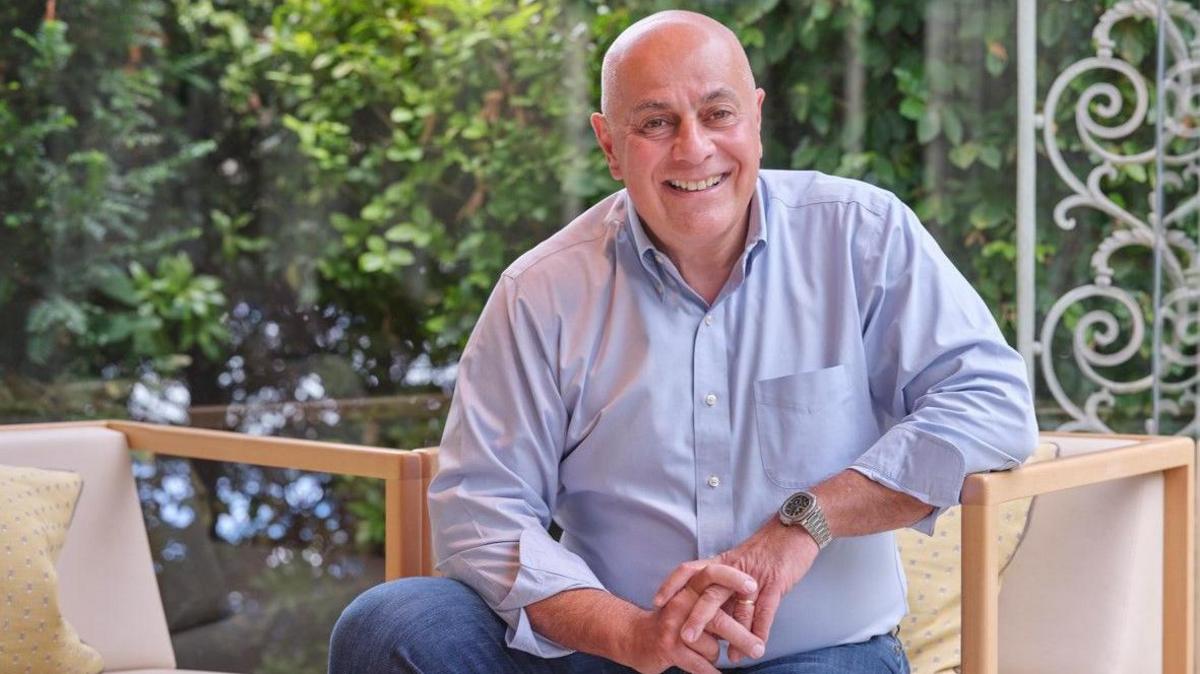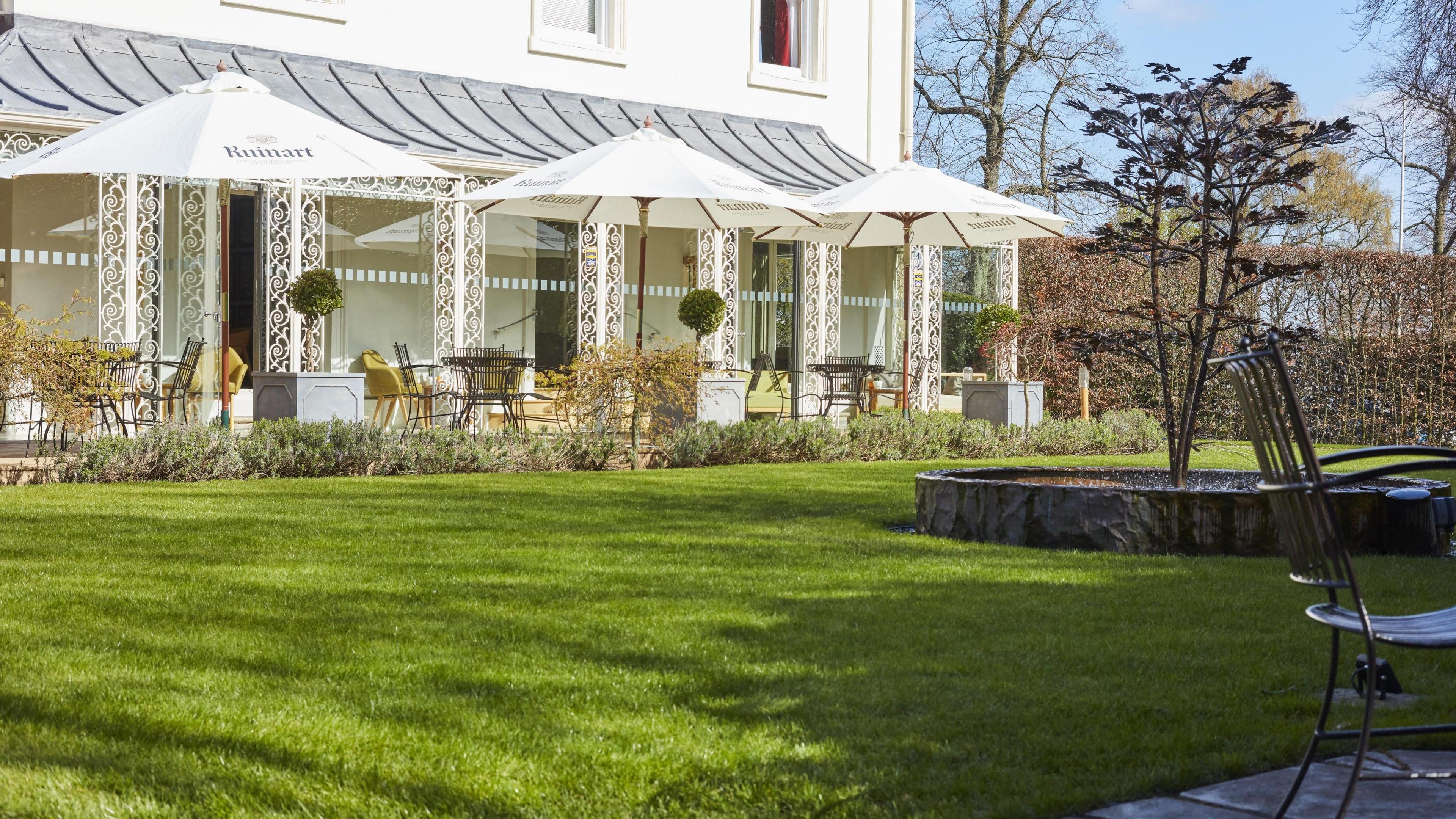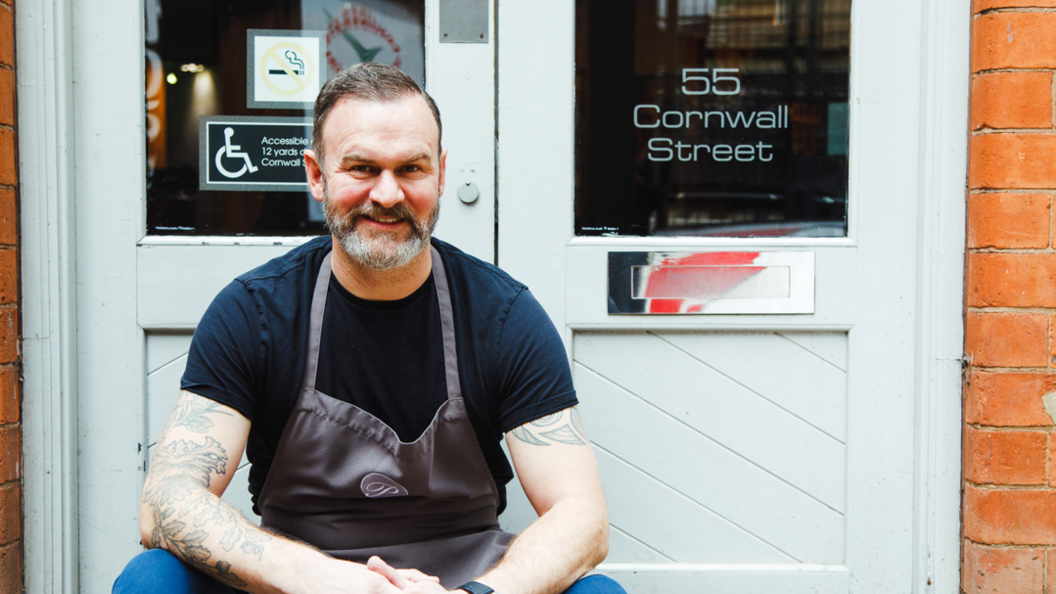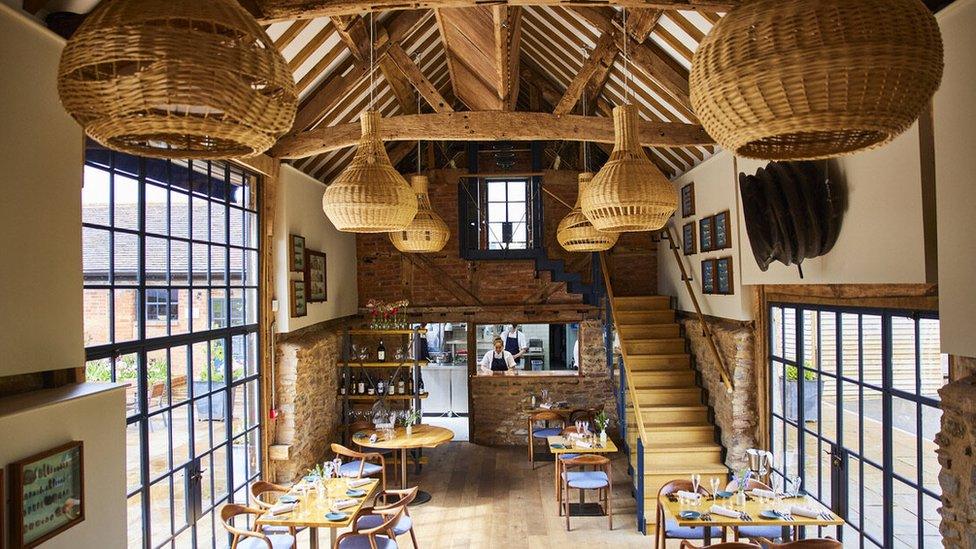Can fine dining weather the financial storm?

Glynn Purnell said the demise of his Michelin-starred restaurant marked the end of an era
- Published
The hospitality industry has endured a tough journey since the outbreak of the pandemic, sending many pubs and restaurants to the wall.
But if there was one area expected to weather the storm, it was the fine dining sector - the best food in the best surroundings.
Not any more.
Glynn Purnell's restaurant in Birmingham is the latest Michelin-starred venture to close.
In Leeds, fellow TV chef Michael O'Hare, whose previous restaurant earned the city its first Michelin star in a decade, closed his latest business this month.
And in London, dining-out publication Hot Dinners, external has reported on a string of closures including Cornerstone in Hackney and Pollen Street Social in Mayfair.
Purnell described his decision as a sad day and the end of an era, but added he would be gearing up for a new chapter.

Glynn Purnell, here pictured with Michel Roux Junior, has been a regular on many TV cookery shows
Regular appearances on TV shows like Saturday Kitchen, The Secret Chef and the Great British Menu made Purnell - nicknamed the Yummy Brummie - as popular with viewers as foodies.
However, he said that profile had not made him "bulletproof", with bookings falling more than 20%.
He blamed chains - the "big corporate monsters" - as well as the city's high parking fees, clean air zone and a decline in the night-time economy.
Purnell also warned Birmingham could lose its culinary reputation if it could not even sustain "two or three independent restaurants".
He said the financial pressures made it a "turn-off for anybody that wants to live the dream like we have at Purnell's".

Andreas Antona said fine dining was a barometer of the nation's wider economy
One Birmingham restaurant that appears to have bucked the trend is Simpsons, which has been in business for more than 30 years and has had a Michelin star since 1999.
But owner Andreas Antona said it was still not immune to the economic challenges.
In the early 2000s, both he and Purnell were building their businesses during the Birmingham "renaissance".
Before then, the city was known purely for its Balti Triangle - an area featuring many of the curry houses devoted to the Birmingham-originated dish.
Purnell had worked for 10 years for Antona, who said he considered him "a part of my family".
Their business success built Birmingham's culinary reputation.
"We moved to being second to London for Michelin restaurants. But now they're all fading," he said.
Antona said hospitality and fine dining were both going through the mangle and it would be a long time before things improved.
He said banks were not lending to young, aspiring chefs and the industry would be "in the doldrums" until the economy got better.

Both Purnell and Antona have other businesses, in Birmingham and in Warwickshire
"Fine dining is a barometer of the wellbeing of the nation and our nation is very ill. Until it gets better and people start talking about prosperity, I think we are in for a tough time," he said.
Antona said the industry had been hit by a shortage of skilled, European workers after Brexit, and subsequently by the Covid pandemic and the cost-of-living crisis.
He said Simpsons had competed for staff by offering a four-day week, fewer hours and higher pay.
'Back to the 70s'
Income, however, has not kept step with higher costs.
He said customers were visiting for celebrations and special occasions, whereas "eating out was a way of life" before Covid and Brexit.
Antona, who has been cooking professionally since 1974, said it felt like the industry had "gone back to that era".
He said he wanted to see a rethink on "old-fashioned" business rates and exemptions on some earnings for small businesses.
The Treasury said it had pledged to cap corporation tax at 25%, making the "business rates system fairer, and to publish a business tax roadmap so that future investments can be planned with confidence".
It added action was also being taken to address the issue of late payments, affecting many small businesses.

Sat Bains said customers would always seek out memorable dining
In Nottingham, at the Michelin-starred Restaurant Sat Bains, chef and patron Sat Bains said there were "a rocky few months ahead".
He said the current economic climate had posed challenges for many businesses, but fine dining "has always been about resilience, innovation and adapting to changing times".
He said the restaurant had been offering an a la carte menu since April after seeing evidence that guests were looking for "a great experience but within a certain price point".
Bains added: "While it's true that financial pressures are real, Michelin-starred restaurants are uniquely positioned to weather the storm by focusing on what they do best - providing exceptional culinary experiences.
"Customers will always seek out memorable, high-quality dining, and the finest restaurants will continue to thrive by embracing creativity and delivering value through their food, service, and overall experience.
"But there will always be some casualties along the way."

Antona wants to see business rates brought up to date
Back in Birmingham, food writer Kirsty Bosley said there had been many incredible chefs who had elevated it to an "amazing foodie city".
"It's like a rising tide lifts all ships. To see one of those ships go down is really disheartening," she said.
"But I would be sad for people to think that the closure of this one restaurant means that the city hasn't got much going on."
Tom Cullen, from the newsletter I Choose Birmingham, said while it was important to note the closure of a Michelin-starred restaurant, a lack of cash in people's pockets had hit the hospitality industry across the board.
'Relentless cost pressures'
He said: “What Glynn offered was very much the luxury end of things, but it’s by no means [just] the luxury names that are closing."
Nor are the challenges limited to the Midlands.
Kate Nicholls, chief executive of UKHospitality, added that "relentless cost pressures and an unsustainable tax burden" on the wider sector continued to close venues and had also "stymied investment".
"This will come to a crescendo in April when the end of business rates relief will sting hospitality with a £928m bill and hospitality and leisure businesses will see their bills quadrupling, totalling tens of thousands of pounds per venue," she said.
The trade body has called on the government to "introduce a new lower, permanent and universal rate for hospitality's business rates" as well as longer-term reforms.

Sat Bains said fine dining was about resilience, innovation and adapting to the times
The Treasury said it would not comment on speculation around future tax policies - but Chancellor Rachel Reeves has been clear that difficult decisions lie ahead.
Labour's manifesto committed to a fairer business rates system to level the playing field between the high street and online giants, and to incentivise investment, tackle empty properties and support entrepreneurship.
Get in touch
Tell us which stories we should cover in Birmingham and the Black Country
Follow BBC Birmingham on BBC Sounds, Facebook, external, X, external and Instagram, external.
- Published14 October 2024

- Published17 November 2023
